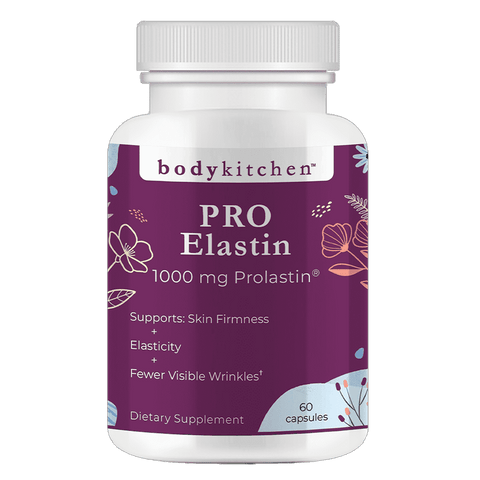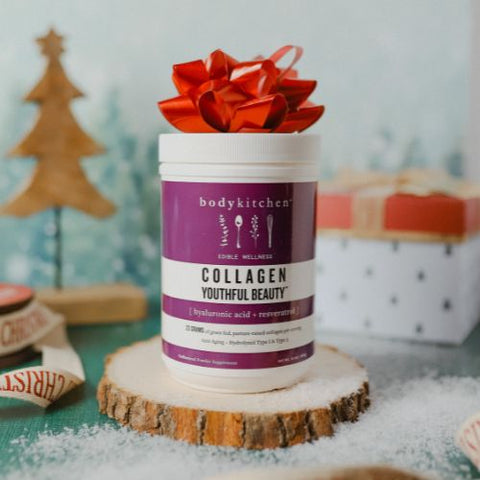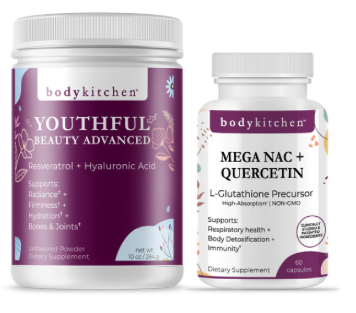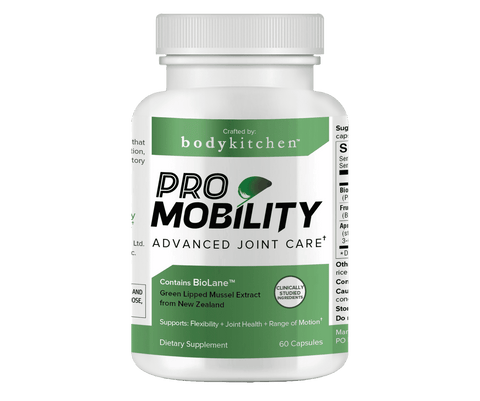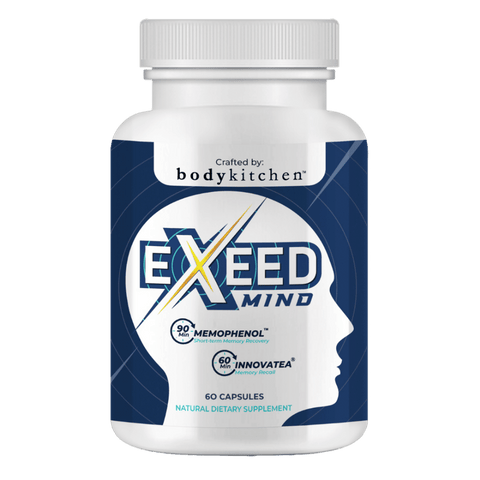How to Reduce Inflammation in the Gut
Prior to experiencing symptoms such as gas, bloating, diarrhea, or constipation, most people don’t give much thought to gut health. But for those struggling with uncomfortable, inconvenient, or even painful digestive symptoms, the question of restoring gut health becomes an urgent concern.
Gut inflammation arises as a response to irritation in the digestive system; when the immune system works to address irritation, which can cause swelling and pain. More severe gut inflammation is associated with potentially serious chronic gastrointestinal diseases such as irritable bowel syndrome (IBS), Crohn’s disease, and ulcerative colitis.
Having a chronically inflamed gut can contribute significantly to numerous health problems, not only in the digestive tract but throughout the body, which may manifest in symptoms ranging from brain fog and headaches to joint pain and skin rashes. Gut inflammation can even impact mental health: the gut and brain are inextricably linked by millions of physical and chemical connections between the enteric nervous system (ENS) and central nervous system (CNS). This bidirectional connection is known as the gut-brain axis.
The full-body effects of gut inflammation in more detail and provide guidance on how to improve digestion naturally at home and how to heal the gut for greater overall health and wellness.
Before making any changes to your diet or supplement intake, please speak with a physician. Body Kitchen’s advice is not a substitute for speaking with a medical expert, since we are not aware of the reader’s possible medical conditions, etc.
What Triggers Gut Inflammation?
Those struggling with gut inflammation symptoms may benefit from avoiding certain habits and behaviors. The most common triggers of gut inflammation can include:
- Drinking alcohol
- Consuming too many inflammatory foods, such as those high in refined sugars
- Not eating enough gut-healthy foods containing fiber, antioxidants, micronutrients like zinc and magnesium, prebiotics, and probiotics
- Stress
- Sleep deprivation
- Lack of or excessive exercise
- Trans fats and excessive saturated fats, deficiency in omega 3 fats
What is the Fastest Way to Reduce Gut Inflammation?
One of the quickest ways to improve gut health and reduce inflammation naturally may be through the consumption of probiotic foods, which are those that contain live bacteria that may be beneficial to gut health. For instance, yogurt and kefir with live and active cultures contain various strains of lactobacilli, which may not only reduce or prevent digestive symptoms such as diarrhea but may also reduce allergy symptoms, treat eczema, produce lactic acid that reduces populations of harmful bacteria in the gut, and more. Consuming prebiotic foods containing fiber that feeds beneficial microbes is another possibly helpful strategy for healing gut inflammation.
Regular exercise is thought to be crucial for overall health, including gut health. Research shows that consistent physical activity is associated with a healthier microbiome composition, which means that the gut may have a higher population of beneficial bacteria and lower populations of harmful bacteria. On the other hand, excessive exercise, especially cardio or HIIT has been known to negatively impact gut health. Use common sense and don’t overdo it.
What Foods Reduce Inflammation of the Gut?
Those seeking natural ways to reduce inflammation should consume pre and probiotics to improve their gut health and transition to an anti-inflammatory diet.
Anti-Inflammatory Diet
Anti-inflammatory diets emphasize the consumption of foods that are thought to contain anti-inflammatory properties, such as deeply colored berries that are high in antioxidants; cruciferous and green leafy vegetables; healthy fats such as those found in olive and coconut oil, fatty fish, and nuts; as well as spices such as turmeric, fenugreek, and cinnamon.
Those adhering to an anti-inflammatory diet should also avoid the gut inflammation triggers listed above, especially alcohol, foods, and drinks that are high in refined sugars. Other potentially inflammatory foods include red meat, processed meat, margarine and shortening, fried foods, and refined carbohydrates such as white breads.
Why Are Probiotics Good for Health?
Although researchers are still investigating the health benefits of probiotics, consuming probiotics may be able to help maintain a healthy balance of bacteria in the digestive tract.
Depending on the bacterial species in question, probiotics may also produce various substances that benefit gut health, including lactic and acetic acids, short-chain fatty acids, hydrogen peroxide, and other bacteriocins, all of which reduce populations of pathogenic bacteria.
Consuming pre and probiotics may also help regulate the body’s immune response, reduce the risk of heart disease, lower cholesterol, and minimize bronchitis, eczema, and diarrhea symptoms. Probiotic bacteria may also adhere to the gut’s mucosa and epithelium, outcompeting pathogenic bacteria and strengthening the epithelial barrier.
Foods Rich in Probiotics
In addition to fermented dairy products such as yogurt and kefir, other probiotic-rich foods that are thought to heal gut inflammation include traditionally lacto-fermented sauerkraut and pickles (meaning that the vegetables were fermented in a salt brine to allow the growth of good lactic acid bacteria, rather than being pickled in vinegar), kimchi, kombucha, and miso.
It may be possible to promote the growth of beneficial microbes in the gut by consuming prebiotic foods, which provide good bacteria with the fiber needed for sustenance. Some of the best prebiotic foods to improve gut health may include chicory root, dandelion greens, seaweed, wheat bran, flaxseeds, cocoa powder, apples, oats, bananas, asparagus, onions, garlic, avocados, and other high-fiber fruits and vegetables. Foods that are high in soluble fiber, such as oats and apples, may be particularly soothing for an inflamed gut.
What Are the Signs that You Need Probiotics?
Those struggling with digestive symptoms such as diarrhea, constipation, gas, or bloating may benefit from probiotic supplementation. Since probiotics may potentially offer full-body health benefits. One way to optimize gut health may be to add a high-quality probiotic to your regimen.
Can Stress Cause an Inflamed Gut?
Relentless stress may contribute to gut inflammation. Emerging research shows that “psychological stress leads to monocyte-mediated exacerbation of gut inflammation.” In other words, stress commonly causes immune cells called monocytes to go into overdrive, worsening gut inflammation. This means that another strategy for improving gut health may be to reduce overall stress levels, however possible.
Stress Management Techniques
Some of the most effective stress management methods can include meditation, deep breathing, and yoga. For those who are chronically stressed, finding effective stress management techniques, and sticking with them is thought to be one of the most effective natural remedies for
How Long Does It Take for Inflamed Intestines to Heal?
The time it takes for inflamed intestines to heal varies significantly depending on numerous factors, including the cause of the inflammation (e.g., infection-related colitis vs. inflammatory bowel disease); the severity of the intestinal inflammation; consumption of probiotic-rich foods, probiotic supplements taken, and prebiotics consumed; stress levels; and whether or not one gets adequate sleep.
What To Look for In Probiotic Supplements
It is common to look for three key features when choosing a probiotic supplement:
- The presence of bacterial species with peer-reviewed scientific evidence of their benefits and efficacy.
- The dose of probiotics (measured in colony-forming units, or CFUs).
- The inclusion of prebiotics to feed beneficial bacteria.
Body Kitchen Gut Balance
The best probiotics on the market are thought to contain species of bacteria studied to confirm their health benefits. For instance, Body Kitchen Gut Balance includes three strains of beneficial bacteria, all of which have scientific evidence supporting their efficacy: Bacillus Coagulans, Bacillus Subtilis, and Bacillus clausii.
Also significant may be the dose of bacteria that a probiotic supplement provides, measured in colony-forming units (CFU). In general, a high-quality probiotic may contain a minimum of 1 billion CFU. Body Kitchen Gut Balance includes 6 billion CFU per two-capsule serving.
It is often recommended to look for a supplement that includes prebiotics to help the probiotic bacteria grow and to maximize their health benefits. Body Kitchen Gut Balance incorporates flavonoid compounds from oranges and grapefruits in a proprietary blend known as MicrobiomeX®. Clinical research has shown that 12 weeks of daily supplementation with 500mg of MicrobiomeX® encourages the growth of beneficial bacteria that produce butyrate. This short-chain fatty acid can reduce biomarkers of gut inflammation such as calprotectin and may improve gut barrier function by increasing the secretion of antibodies in the gut lumen.



